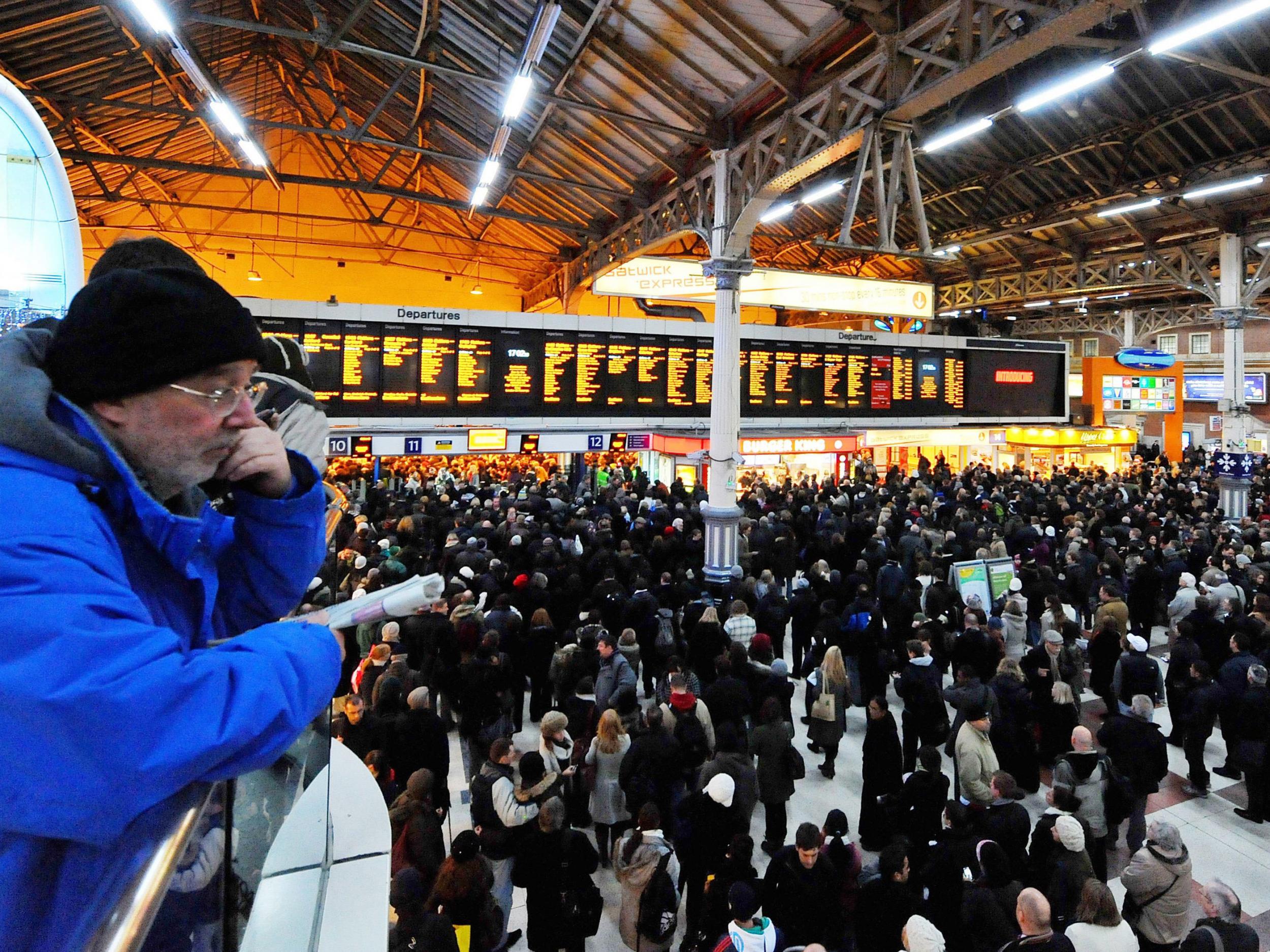'Nobody took charge': train bosses and transport secretary under fire over rail timetable fiasco
Inquiry concludes failings by train operators, Network Rail and DfT combined to cause chaos for passengers

Your support helps us to tell the story
From reproductive rights to climate change to Big Tech, The Independent is on the ground when the story is developing. Whether it's investigating the financials of Elon Musk's pro-Trump PAC or producing our latest documentary, 'The A Word', which shines a light on the American women fighting for reproductive rights, we know how important it is to parse out the facts from the messaging.
At such a critical moment in US history, we need reporters on the ground. Your donation allows us to keep sending journalists to speak to both sides of the story.
The Independent is trusted by Americans across the entire political spectrum. And unlike many other quality news outlets, we choose not to lock Americans out of our reporting and analysis with paywalls. We believe quality journalism should be available to everyone, paid for by those who can afford it.
Your support makes all the difference.An inquiry has concluded that "nobody took charge" of the rail timetable chaos that caused misery for millions of passengers when the new schedules were introduced in May.
Train operators had attempted to introduce radical new timetables, from 20 May, which affected nearly half the passenger journeys in Britain.
They adopted a “big bang” approach to bringing in new schedules in southeast and northwest England, particularly on the Thameslink line through central London and on Northern Rail.
But within hours of the timetable change taking place, the plans unravelled — leading, says the report by Stephen Glaister, “to passengers enduring delays and cancellations as they could not predict how long a journey may take, or even if it was possible to travel”.
“The industry placed engineering and planning concerns ahead of serving its passenger,” the report concludes. ”That was made worse by the poor information train operators provided when disruption happened.”
Govia Thameslink Railway was planning to run 3,880 trains a day after the timetable change, but 270 a day did not run at all. Weekly delay minutes trebled to over 30,000.
Northern failed to run 125 trains of a planned 2,510 services. Its delay minutes rose from under 15,000 to close to 50,000.
The RMT union summed up the rail chaos on the first working day of the new timetable as “Meltdown Monday”, while Andy McDonald, the shadow transport secretary, was among many demanding re-nationalisation.
The £7bn Thameslink programme and the £1bn-plus Great North Rail Project should have added more services to new destinations, introduced new rolling stock, provided more seats for passengers and improved reliability.
But after three months studying the causes of the shambles, Professor Glaister concludes: “Good intentions and over-optimism within the rail industry about its ability to recover missed deadlines left no time to uncover and fix problems.”
The report says the effects of the much-delayed North West Electrification Programme were grossly underestimated by Network Rail, “which wrongly believed it could make up the time”.
It also finds that the DfT’s decision to agree to phase the introduction of new services on Thameslink stretched resources at Network Rail’s timetabling department.
The industry as a whole failed to foresee that these factors created a serious risk that the revised timetable could fail.
Frontline rail workers are praised for their response. “Staff worked in very difficult circumstances to do as good a job as possible and I thank them for their efforts,” says Professor Glaister.
The transport secretary, Chris Grayling, has launched a Rail Review. He said: “We’ve been clear that the railway needs reform to prioritise its passengers.”
Network Rail’s new chief executive, Andrew Haines, said: “I’d like to add my sincerest apologies to passengers for letting them down with May’s timetable troubles.”
Anthony Smith, chief executive of the independent watchdog Transport Focus, said: “Passengers will cringe when they read Stephen Glaister’s report which identifies a catalogue of over optimism, missed deadlines and blurred accountability.
”The Rail Review must address what went wrong, and to repair trust amongst the travelling public it must ultimately deliver a more resilient rail system that offers more space for passengers to sit or stand and better value for money.”
Join our commenting forum
Join thought-provoking conversations, follow other Independent readers and see their replies
Comments